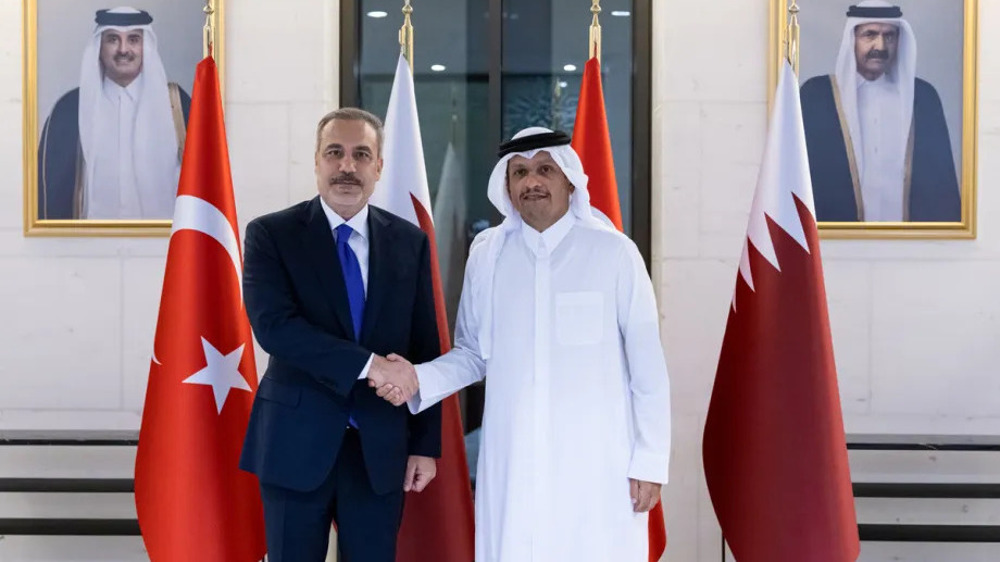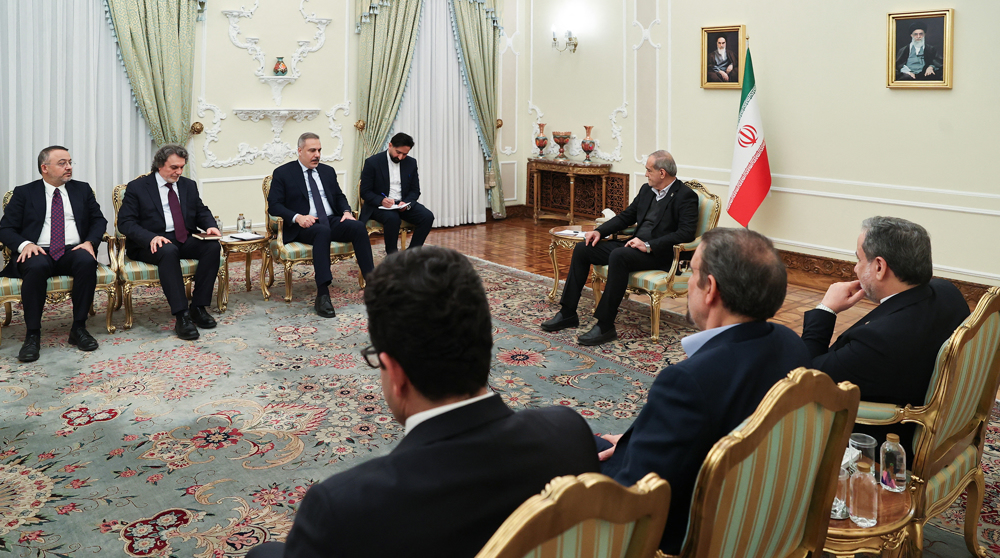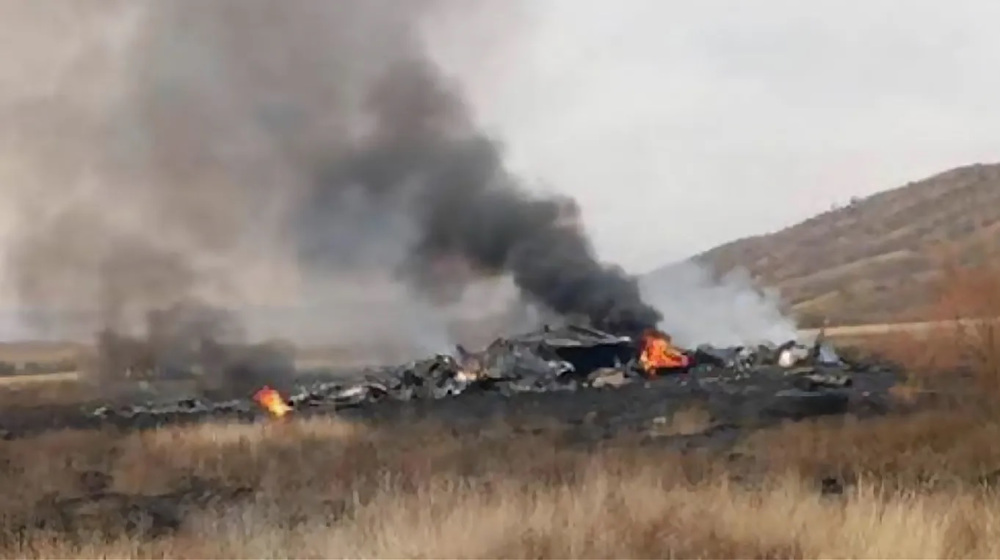Turkey offered Russia to jointly produce S-500 missile system: Erdogan
Turkish President Recep Tayyip Erdogan says he has offered his Russian counterpart Vladimir Putin for Ankara and Moscow to jointly produce a new generation of S-500 high-altitude missile defense systems.
“I have contacted President Putin with a proposal about the joint production of the S-500,” Erdogan said in an interview with Turkish 24 TV.
The Turkish president did not mention the Russian president’s response to the idea or when exactly it had been raised.
Turkey’s official Anadolu news agency quoted Erdogan as saying that Moscow had given Ankara a loan to purchase the S-400 anti-aircraft missile systems on “very acceptable terms.”
“During the second and third stages, we will proceed to the joint production of the S-500 systems,” Erdogan said.
Russia’s Defense Minister Sergei Shoigu earlier said that the new system would start being supplied to the country’s armed force in 2020.
In February, then-Deputy Prime Minister of Russia Dmitry Rogozin told the Kommersant daily newspaper that the production of truck-mounted S-500 and S-400 systems was already underway in the western region of Nizhny Novgorod.
Reports suggest that the S-500 will have a range of 600 kilometers (370 miles) for the anti-ballistic missile variant and 400 kilometers (250 miles) for the air defense version.
The system is also said to be capable of engaging up to 10 ballistic hypersonic targets flying at speeds between 18,000 kilometers per hour (11,000 miles per hour) and 25,000 kph (16,000 mph).
This means the system will be best equipped to counter ballistic missiles with a launch range of 3,500 km (2,200 miles).
According to some reports, the S-500 will be able to use nuclear-tipped missiles to wipe out multiple warheads at once or take out individual warheads with hit-to-kill missiles.
The S-500 is expected to offer considerable upgrades over the S-400, Russia's current flagship air defense system. However, higher production and maintenance costs mean the S-500 system will only be used against threats that are out of reach for its predecessor.
Erdogan earlier said that, if necessary, Ankara would utilize sophisticated Russian-made S-400 missile systems, which it plans to acquire under a deal finalized late last year.
“These are defense systems. What are we going to do with them if not use these defense systems? Are we going to depend on the United States again? We have been demanding them for years, but the answer given to us has been: The [US] Congress is not allowing. We are tired of this,” Erdogan said in remarks broadcast live by private Turkish-language TGRT Haber television news network.
On April 3, Erdogan and Putin said in the Turkish capital, Ankara, that they had agreed to expedite the delivery of S-400 missile systems. The delivery is expected to start between late 2019 and early 2020.

The United States has reportedly warned Turkey against the consequences of its decision to buy S-400 surface-to-air missile batteries from Russia, saying Washington could slap Ankara with sanctions over such a purchase.
Turkey is striving to boost its air defense, particularly after Washington decided in 2015 to withdraw its Patriot surface-to-air missile system from Turkey's border with Syria, a move that weakened Turkey’s air defense.
Before gravitating towards Russia, the Turkish military reportedly walked out of a $3.4 billion contract for a similar Chinese system. The withdrawal took place under purported pressure from Washington.
Ankara’s ties with its Western allies in NATO have been strained over a range of issues.
Erdogan has been critical of Washington for supporting Kurdish groups in Syria that he says are responsible for terror attacks inside Turkey.
The Turkish leader has also slammed American officials for rejecting his requests to hand over Fethullah Gulen, a powerful opposition figure living in the US.
US-led meeting talks implementation of ‘phase two’ of Gaza ceasefire, ignoring Israeli violations
Iran’s subsidized currency allocations at over $42 in Mar-Dec: CBI
VIDEO | Locals march in eastern France after gas explosion kills two children
Iran wins double gold at world age-group Blitz Chess in Antalya
Two former Palestinian prisoners recount sexual abuse in Israeli detention
Iran cuts steel imports amid surge in domestic output
VIDEO | Trump’s comments on Golan Heights spark outrage among Syrians
VIDEO | Press TV's news headlines










 This makes it easy to access the Press TV website
This makes it easy to access the Press TV website